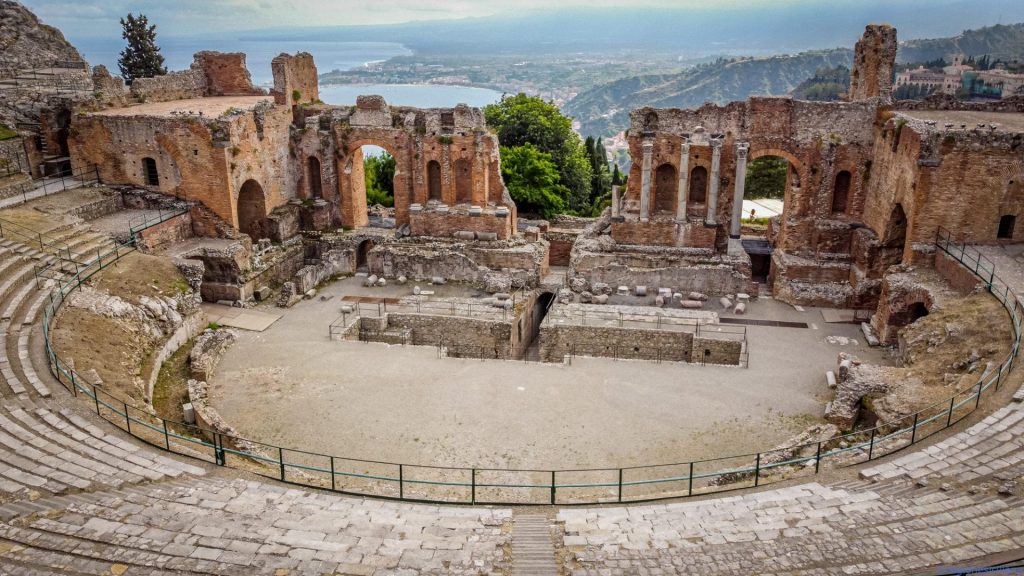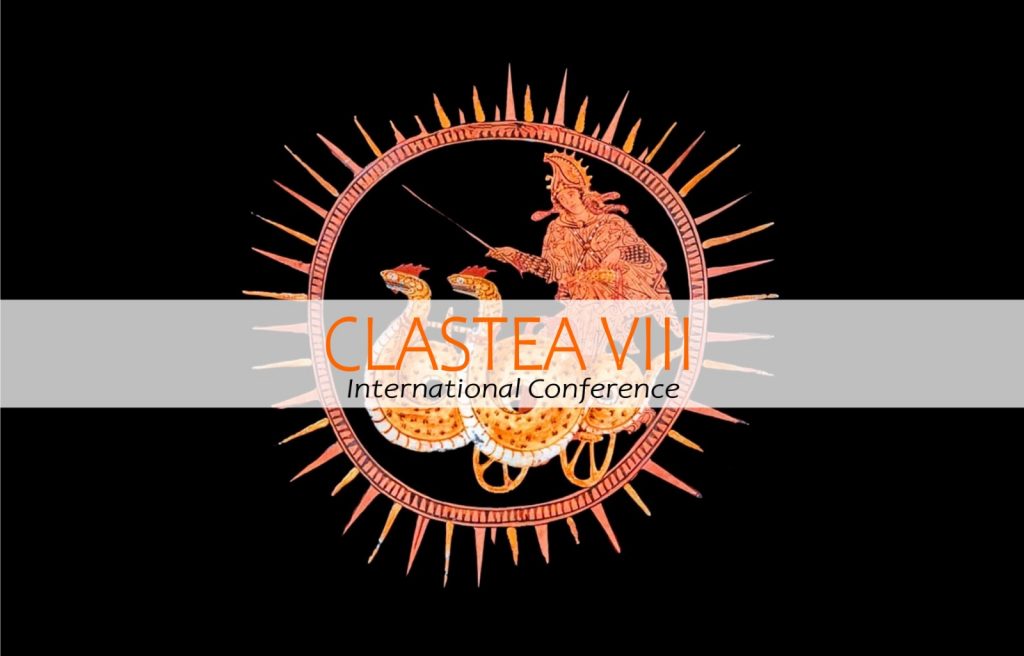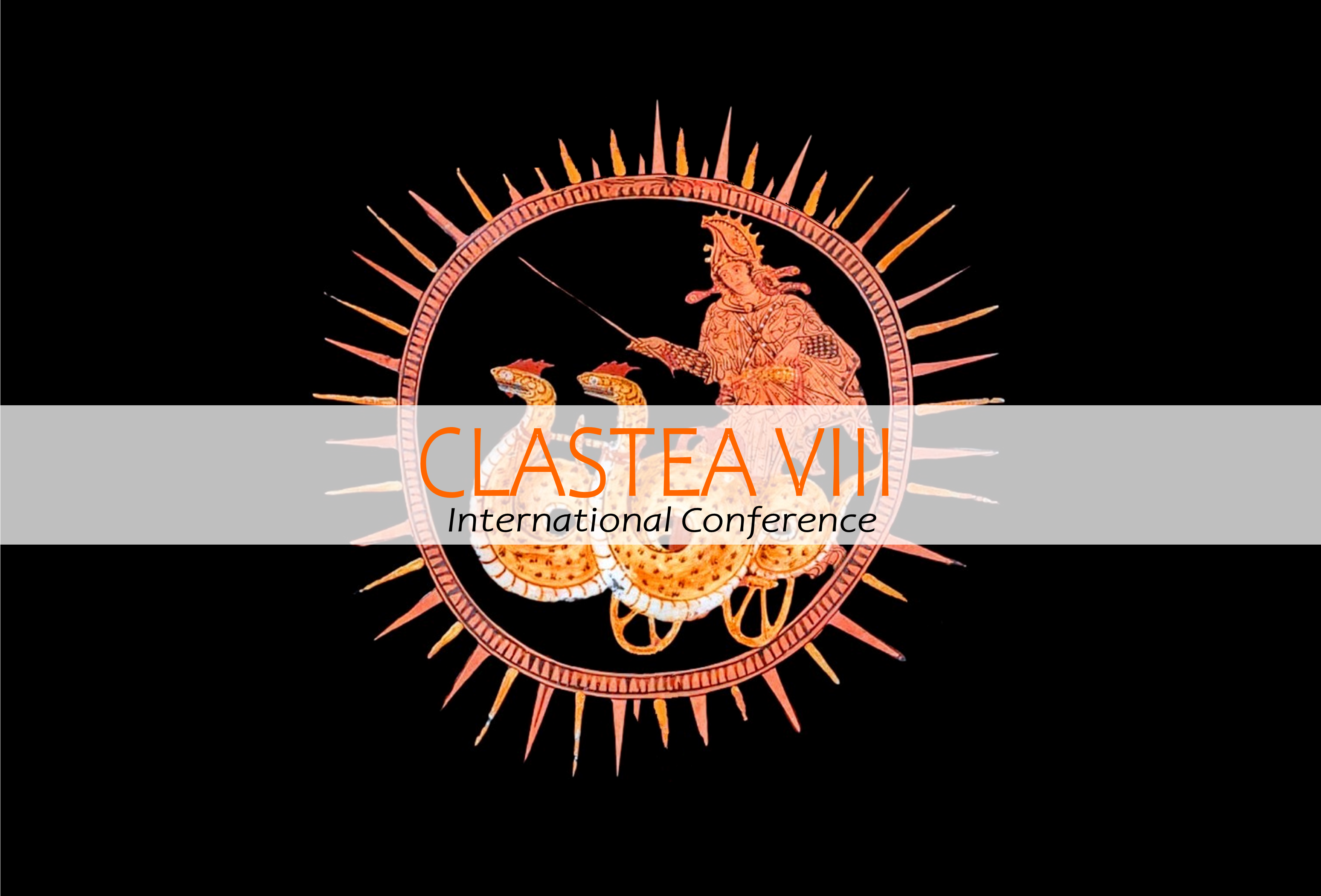THE CONFERENCE

The CLASTEA international network, now in its eighth edition, continues its well-established path of epistemological investigation into Greco-Latin theatre and its processes of transmission, reception, and transformation with the VIII Conference dedicated to the paradigmatic theme: “On Stage: Myth and Ritual Between Past and Present”. This event is part of a long-standing research tradition that has progressively expanded its interpretative scope, moving beyond purely philological inquiry to embrace broader analytical perspectives on classical dramaturgy.
The symposium is conceived as a broad-spectrum scientific platform, open to contributions from scholars with diverse academic backgrounds and methodological approaches. Its inclusive vocation of the event is reflected in its openness to researchers working in various disciplinary areas, including classical philology, history of religions, theatre history, performance studies, anthropology, linguistic analysis of ancient dramaturgy, studies of aesthetic philosophy, theatrical phenomenology, and reception studies concerning classical traditions in modern and contemporary contexts.
The proposed theme, “On Stage: Myth and Ritual Between Past and Present”, is marked by its polysemic nature and its ability to stimulate a multi-perspective exploration of ancient theatrical phenomena and their contemporary resonances. The conceptual framework of the Conference is organized according to an interdisciplinary approach aimed at overcoming traditional academic compartmentalization and encouraging a productive dialogue across methodologies and disciplines.
Priority will be given to contributions that, with methodological rigor and theoretical innovation, focus on:
- Philological-literary analysis of Greco-Latin dramatic texts, especially in relation to mythical narrative structures and ritual components.
- The investigation of performative practices and stagecraft in antiquity.
- Study of processes of reception, appropriation, and reinterpretation of classical theatre across historical periods.
- Analysis of contemporary dramaturgical experimentations re-elaborating the mythical and ritual paradigms of classical antiquity.
- Reflection on methodologies of translation and adaptation for classical texts in today’s performance contexts.
The scientific committee will give special consideration to proposals that encourage multidisciplinary comparison and dialogue, integrate diverse methodological approaches, and trace innovative connections between past and the present. The conceptual dichotomy between myth and ritual constitutes the theoretical backbone of the Conference. A diachronic inquiry into ancient theatrical tradition – reinterpreted through their layered reception – will offer a deeper understanding on these two foundational components of classical theatre, to discern and evaluate their profound meaning and structuring function within Greco-Latin dramaturgical architecture. The proposal will articulate around some key epistemological questions, such as:
- How do mythical dimension and ritual praxis interact across the temporal continuum in different cultures and different historical-social contexts?
- What is their semantic value and performative potential for the contemporary audience?
- To what extent do myth and ritual still provide us with effective interpretative tools for our understanding of contemporary’s theatrical practices?
The international scientific community recognizes the vitality and disruptive power of ancient theatre, whose capacity to engage with an ever-changing present seems inexhaustible. This intrinsic aptitude for re-semanticization and renewal requires ongoing scholarly attention. The Conference thus positions itself as a privileged space for discussion, comparison, synthesis of the most recent scientific acquisitions in the field of classical theatrical studies. It also aspires to delineate new research trajectories and stimulate innovative methodological approaches in the analysis of the complex dialogue between antiquity and contemporaneity.

